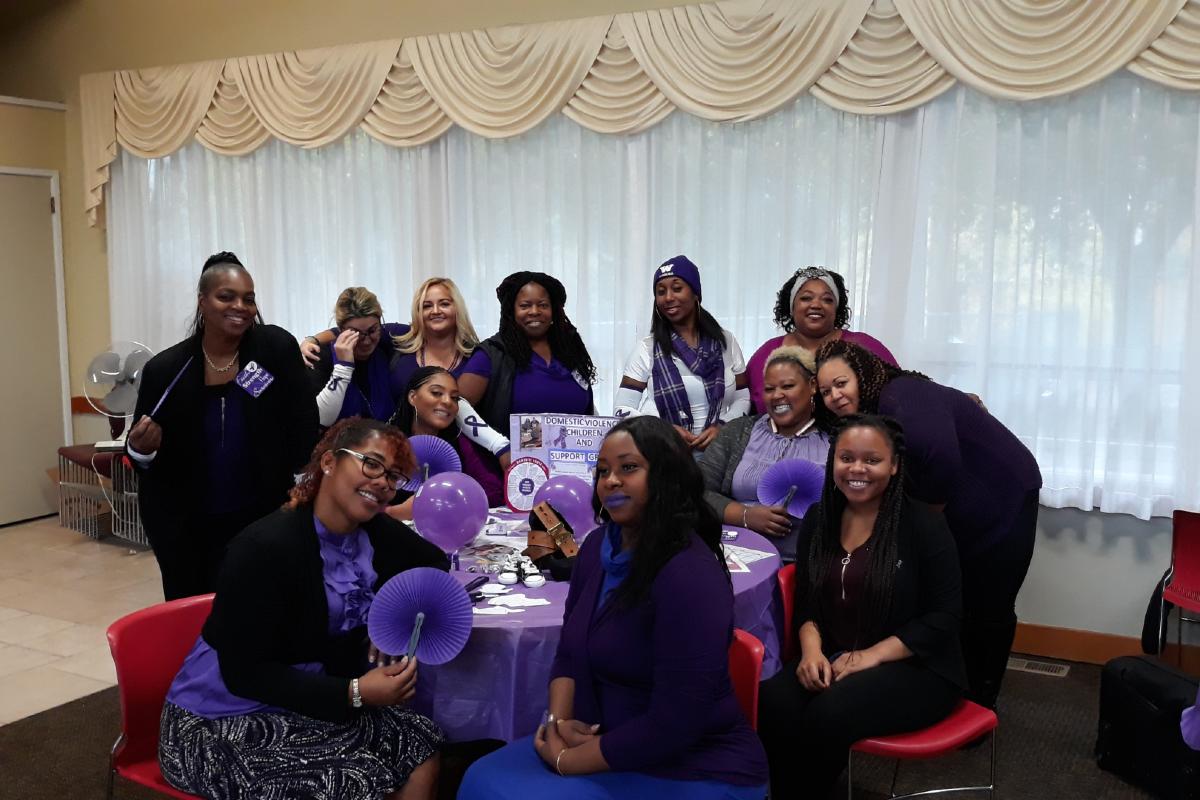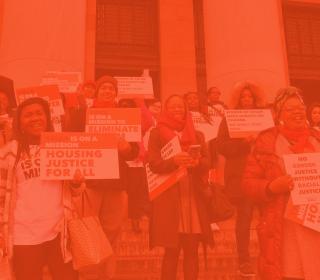YWCA takes a specialized approach to serving survivors with trauma-informed care to support them in overcoming and healing from their abusive relationships. Our Gender-Based Violence Specialized Services (GBVSS) department's director, Doris O’Neal, has led YWCA’s work specializing in support for Black women and other survivors of color. She previously shared her advice on how to support survivors on our blog.
Here are some tips from her and one of YWCA's Domestic Violence Advocates, Da’Vonya Jackson:
Being a Good Ally
Pull your friend or family member aside into a more private, one-on-one setting, and don’t confront or assume, Jackson says. Say something like, “I’ve noticed you’re more isolated lately. If you need to talk, you can talk to me.” Small conversations like this can open the door and increase comfort in sharing when they’re ready. After all, isolation may also be the result of depression or another mental health challenge.
“As a friend, just listen, validate her or his feelings, be nonjudgmental, be compassionate,” O’Neal says. If someone discloses domestic violence, ask: “What do you want to do?” and “What do you need to be safe?”

When fleeing a domestic violence situation, a survivor may simply be thinking about reaching a safe destination. If a survivor can’t find housing, they may need to choose between staying with their abuser or becoming homeless.
To support your friend, help them get connected to a DV advocate to work on a safety plan. A safety plan increases their ability to leave an abusive relationship more safely. When a survivor is leaving, that is the most potentially lethal time. If they need help navigating the financial hurdles of escaping a violent relationship, check out this guide.
Women Rising Boldly
At our 2020 Inspire Luncheon this year, former YWCA program participant Melissa Strawn told her story of surviving domestic violence by finding a safe destination at YWCA Seattle | King | Snohomish. She also gave some advice to those who want to be allies to survivors.
“I think listening is incredibly important. I think validating is incredibly important. Any way that you could remove judgment from the equation, because we never truly know what someone was going through in the moment.”
To women who are going through what she herself experienced, she said, “Trust and believe that you can make decisions for yourself, and that it's not your fault. Each one of us can choose to say, 'No, I'm not okay with this anymore’ regardless of where you are in your relationship.”
A Week Without Violence

You can learn more about how to be an ally to friends and family who experience gender-based violence, as well as the proactive solutions that YWCA is creating to prevent it, from October 18 – 24, at a Week Without Violence: Black, Bold & Brave. The GBVSS team will share information, elevate stories, and raise awareness of the issues at the intersection of race and gender-based violence.
You’re invited to participate in any and all of our planned activities, from online workshops to social media selfies! Visit our website for event registration and more details.

Eric Bronson is the Digital Advocacy and Engagement Manager at YWCA. He manages the Firesteel blog in addition to its social media streams and action initiatives. A graduate of Oberlin College, Eric focuses on the intersection of race and gender within the American political economy.
We tell the stories of those with lived experiences of racism and sexism and invite supporters to take concrete actions to correct the root causes of disparity in our communities.


